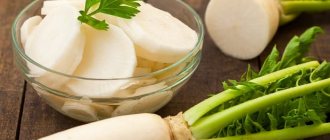- December 3, 2018
- Diets
- Bolshakova Yulia
Nowadays you can find a wide selection of any vegetable oils in the store. Each of them has certain properties unique to this type of product. According to statistics, buyers prefer to purchase familiar sunflower oil. Olive oil is also gaining popularity among housewives. Which one is healthier can only be found out by studying the composition and properties of these products.
Olive oil
It has a rich yellow hue and a subtle aroma. Olive oil has been produced since ancient times. Today, the main world suppliers of this product are Greece, Spain and Italy. Three preparation methods are used in its production:
- The oil cake is considered the lowest quality. It is obtained from the remains of processed olives mixed with unrefined oil. This product is used for frying only.
- The best is Extra Virgin oil, obtained by cold, mechanical pressing.
- There is also a refined product. It contains much less useful substances than its previous form, but it can be used in cooking for stewing, baking and frying.
Various factors can affect its taste. For example, the weather conditions that prevailed throughout the ripening period of the olives, as well as the region of growth and the variety of trees from which the harvest was harvested. Very often, buyers are interested in whether olive oil or sunflower oil is healthier. To answer this question, you should know the chemical composition of these products.
How to choose the right vegetable oil?
Regardless of which oil you prefer - olive, flaxseed or sunflower, there are general rules that should be followed when purchasing:
- The most healthy oil is unrefined oil obtained during the first cold pressing.
- The most environmentally friendly container is glass.
- Do not stock up on vegetable oil in advance - its shelf life is limited.
- Do not eat oil that has begun to taste bitter.
- The presence of sediment at the bottom does not indicate poor quality of the oil.
- Buy several small bottles of different types of oil and use them according to their taste: for frying, baking, salads .
Want to know how to choose:
- Showcases for home collection
- Reliable tour operator
- Exercise bike for home, for weight loss
- Pillow for sleeping
- Vegetables and fruits without nitrates and pesticides - then urgently read our articles
What does it consist of?
Its calorie content is quite high. So, one hundred ml of olive oil contains about 900 kilocalories. It contains Omega-9 polyunsaturated acid, in an amount of seventy-one percent of the total mass. The oil also contains Omega-6 acid, the volume of which does not exceed ten percent.
Which oil is healthier - sunflower or olive?
- Olive oil has a huge supply of vitamin E, which is otherwise called the vitamin of youth. And also vitamin K, which is extremely important for the health of the gastrointestinal tract.
- This natural product also contains betaine and choline. Both substances help in the fight against cancer.
- In addition, the mineral calcium in olive oil helps strengthen bones and teeth, and potassium improves muscle condition.
- The sodium element restores the functioning of the nervous system.
- Iron is involved in the process of hematopoiesis.
Considering its rich composition, this oil can be considered more useful.
Sunny gold
A foreigner who became one of his own
Perhaps this will be news to some, but such a native, yellow and burdock sunflower is not at all an indigenous inhabitant of our latitudes. This familiar flower, the fruits of which, one might say, have become one of the national characteristics of the CIS countries, is a real foreigner, firmly rooted in our lands. And sunflower arrived in Europe quite a long time ago - in the 16th century. Enterprising Spaniards brought it from distant North America along with many other new products (potatoes, tomatoes, tobacco, etc.).
For a long time it was used as a decoration and for cracking seeds on a pile. However, on Russian soil there are enterprising and resourceful people. In 1829, a peasant from the Voronezh province, Daniil Bokarev, first squeezed several liters of viscous liquid from sunflower seeds. Thus began the era of sunflower oil. It turned out to be much cheaper than olive oil, and after mastering the technology of refining, which kills the bitter taste and not very pleasant smell, it completely surpassed its competitor in terms of demand.
Technologies
Extracting oil from sunflower fruits is different from the process used to extract olive oil. Let us briefly describe the “sunflower” technology.
- First, the “wheat is separated from the chaff,” that is, the kernels from the husks.
- Then the cleaned seeds are sent to rolling machines, where they are crushed, turning them into the so-called mint.
- The mint is laid out on a roasting pan and undergoes heat treatment.
- After heat treatment, the resulting substance goes under a press, as a result of which there are two products at the output - the oil itself and the dense mass that remains after pressing (pulp). It still contains a high proportion of oil – up to 22%.
- Fresh oil goes into settling tanks, and they continue to work with the pulp.
- The pulp is sent for extraction into an extractor, where the remaining oil is extracted from it. The process is not easy, so we will leave it outside the scope of this article. In addition to oil, the dry residue contains cake. A valuable product is extracted from it - meal. However, that's another story.
- Next comes the purification (refining) of the resulting oil. Oil refining is also a rather complicated procedure, so we won’t touch on it, let’s just say that in the end we have a product that is ready for sale.
Finally, let us clarify that the highest quality oil is obtained by direct pressing from seeds. It is good both in taste and in terms of beneficial properties. However, there is one drawback that, unfortunately, significantly reduces its prevalence - it has a very short shelf life. Therefore, the production of such oil in large quantities is not commercially profitable.
The combined method of pressing and extraction described above is not used everywhere. The second approach (extraction) is used for mass production of sunflower oil. It is cheaper and allows you to store the resulting products much longer. In stores we see mostly sunflower seeds extracted in this way.
Product properties
It is very often used to improve gastric motility and cleanse internal organs of waste and toxins. Moreover, olive oil or sunflower oil act equally well on this process. Olive oil is included in folk recipes intended to cleanse the liver and gallbladder. To do this, use lemons twisted in a blender and oil directly. Use the composition strictly according to the scheme. The resulting product helps get rid of gallstones.
In addition, it has a beneficial effect on the pancreas and on the condition of the gastric mucosa during peptic ulcers. Due to the huge amount of Omega-3 and 6, this product is recommended for use as a prevention of heart attacks and strokes, as well as for diseases of the cardiovascular system.
Green gold
Olive branch - hoary antiquity
The history of olive oil is very deep. According to some sources, its appearance dates back to the 6th millennium BC. e. Oil production began on the island of Crete, where the cultivation of olive trees was put on an industrial basis. From there, with the help of Phoenician sailors, it spread throughout the entire Oikumene known at that time.
Technologies
The olives are picked from the trees and packed into bags, which are delivered to the oil mill. There they are ground into a semi-liquid mass. The resulting pulp is placed in a special soft container and placed under a press. The extrusion process begins. As a rule, it takes place in conjunction with heat treatment, which significantly improves oil performance.
The pre-final stage - the squeeze flows into a settling tank, where the oil floats on the surface of the water. It is collected with any suitable tool (usually a special ladle) and passed through a fabric filter. The last step is to allow the resulting product to sit for some time (at least a month) so that the solid particles of the olives settle to the bottom. Then the oil is poured into containers, and the oil is ready for sale.
The grade of the resulting substance is assessed by its color. Let’s say right away that the color of the oil does not affect its quality in any way. Here everything depends on ingrained traditions. The most “noble” oil is considered to be the color of light gold. And the malachite hue, for example, indicates a more “low-lying” origin. Naturally, everything depends primarily on the variety, maturity and area where the fruits were collected.
We have very briefly described the traditional manual technology of extracting olive oil, which has remained almost unchanged for 6 thousand years. Of course, today the main work is mechanized, but the principle of production itself remains the same.
Composition of sunflower oil
Refined oil goes through several stages of processing, which include centrifuge squeezing, settling, water removal, filtration, as well as bleaching and freezing. As a result, much less useful substances remain in the refined product than in the unrefined one. It, like olive oil, contains polyunsaturated omega acids. In addition, the oil is an essential source of vitamins A and D, without which it is difficult to imagine a healthy musculoskeletal system, strong teeth and hair.
Beneficial features
Very often, buyers wonder what is better - olive or sunflower oil. Unrefined sunflower oil is recommended for those people who want to improve the condition of their skin and hair. Thanks to the huge amount of vitamin E and A, this product has a rejuvenating effect on the body, prevents the aging process and has a beneficial effect on the functioning of the immune system. Regular consumption of natural cold-pressed oil acts as a prevention of cancer, reduces the level of bad cholesterol and thus improves the functioning of blood vessels.
Comparison: how are they different?
You and I have long understood that “proper nutrition” is one of the areas most saturated with myths and pseudoscience. Well, maybe medications and dietary supplements. This is not surprising, because people spend a lot of money on food, part of which goes into the pockets of the creators of food myths.
First, let's decide by what criteria we need to compare the benefits of a particular product:
- amount of antioxidants (importance for immunity);
- unique beneficial substances;
- vitamin composition;
- potential harm.
We dismiss the taste immediately, because... it's very individual.
In search of products that are most beneficial for our health, we try to buy olive oil or other, more exotic types of vegetable oils. Corn, almond or some kind of coconut oil is not so easy to find in regular stores, and they usually cost much more than sunflower oil, which we forget about completely in vain.
Sunflower is one of the most useful vegetable oils: its properties are in no way inferior to its competitors.
PS If you think that “it doesn’t matter whether it’s sunflower or olive oil, it’s important to buy the most expensive,” then you’re in the wrong place and you need to reconsider your priorities.
Which one is better?
Let's look point by point at why sunflower oil is better than olive oil.
Sunflower oil has a more balanced vitamin complex than olive oil
Sunflower oil boasts of containing a complete, perfectly balanced complex of biologically active substances. omega-6 and omega-9 fatty acids necessary for the body , unsaturated fatty acids in the form of vitamin F.
All these substances are necessary for the structure of cell membranes, the healthy functioning of the nervous system, the prevention of cardiovascular diseases and the maintenance of the body's defenses.
It turns out that in terms of essential polyunsaturated omega-6 fatty acids, sunflower oil is 5 (!) times ahead of olive oil .
Which is healthier?
Sunflower has more antioxidants, which means it is healthier for the immune system.
Tocopherol (vitamin E) is a natural antioxidant that prevents aging of the body and blocks free radicals. Sunflower oil is extremely rich in this “vitamin of youth”: it contains almost one and a half more vitamin E than olive oil.
Sunflower oil is the richest natural source of vitamin E: 100 grams of the product contains approximately 40 ml. a vitamin that is perfectly absorbed by the body, caring for skin, hair and nails. And in olive : less than 15 mg .
In terms of the amount of vitamin E, sunflower oil is 2-3 times higher than olive oil! So which is healthier and why, it’s up to you to decide!
To be frank, there are no other particularly useful substances (in quantities comparable to the required daily intake) in vegetable oil: i.e. neither in olive, nor in hemp, nor in the same sunflower.
Let's take a look at the composition of both oils, as well as lard:
It can be seen that both oils consist mainly of two fatty acids, while sunflower oil is mainly composed of essential linoleic acid, and olive oil is mainly composed of oleic acid (the main component of lard!), which has virtually no effect on cholesterol levels (about which we they really like to lie in advertising).
Of course, oleic acid is important, but it is replaceable and is synthesized, in particular, in the cytoplasm of human liver cells. But it is also one of the most common fatty acids that make up dietary fats, and therefore plays an important role in human nutrition.
But linoleic is a polyunsaturated essential fatty acid . The term “essential” (or “essential”) means that this fatty acid is not produced in the human body, but it is necessary for life and the source of its supply is consumed food.
Linoleic acid, which is 10 times more abundant in sunflower oil than in olive oil, is essential for strengthening the immune system, maintaining healthy skin and nails, and increasing performance.
Yes, remember, neither olive, nor sunflower, nor any other oil affects cholesterol levels - you will learn more about this in our articles “Cholesterol and atherosclerosis or why a low-cholesterol diet will kill you” and “Cholesterol in eggs: benefit, harm or myth? » .
We will write again so that this is etched in your memory and you don’t believe the advertising: not a single oil and not a single product in general fights cholesterol .
Refined sunflower is the best option for frying
In cooking there is the concept of “burning point”. It refers to the temperature at which vegetable oil begins to burn, smoke and release harmful carcinogens. So, it is refined sunflower oil that is ideal for frying , since its burning point is at 250 degrees (olive oil, for comparison, begins to smoke at a temperature of 200 degrees).
In addition, it can be used to prepare absolutely all dishes with a light heart, without remembering the huge price of the product.
Indeed, there is a certain uniqueness about olive oil, since it is produced by cold pressing, i.e. with maximum preservation of useful qualities during production. The question arises: is it possible to fry with cold-pressed oil? The answer is obvious. Such a product consists of 70-80 percent monosaturated fatty acids, and to be more precise, linoleic and oleic acids.
The beneficial properties of such acids are lost at temperatures above 90-120 degrees . And when frying, the temperature in the frying pan reaches 190-250 degrees. By cooking with cold-pressed oil, you kill the beneficial properties of the product and add very dangerous carcinogens to the food.
So is it better to fry in olive or sunflower oil? For frying, you need to use REFINED (no matter what) OIL and do not overheat the pan too much, i.e. cook for a long time on LOW HEAT. And, of course, do not fry in the same oil twice.
Sunflower seeds contain lecithin
The most important advantage of sunflower oil is the presence of lecithin in it. Oh, you don't know what this is? So we'll tell you now! Lecithin is a substance with a high content of phospholipids. This is one of the most important components of fat metabolism of all cells in the human body.
Lecithin is of plant origin and is often used as a food additive. The name of the substance comes from Latin and means “egg yolk.” It contains the largest amount of lecithin.
In the table of food emulsifiers, lecithin is marked E322 and is a completely permitted and similar replacement for animal lecithin or polyglycerol (E476). If you meet one, don’t be alarmed!
Lecithin is a substance essential for the human body. Just imagine: almost half of the liver is made up of lecithin, and a third is the tissue that surrounds the spinal cord and brain!
Lecithin is an essential building material for cell regeneration and a powerful antioxidant that prevents the formation of toxic compounds in organs. It also ensures normal functioning of the central nervous system and brain. Lecithin transports nutrients, minerals and vitamins to cells.
The body's production of lecithin also increases during physical activity. By the way, sunflower oil has a mild laxative effect, helps improve digestion, and stimulates the liver and biliary system.
Which one has more calories?
The calorie content of the oil (both of them) is the same (899 kcal per 100 g), which should be taken into account when using the product in weight loss diets.
Harm to health
Any oil is a fairly high-calorie product, so it is highly recommended not to abuse it. For some people, it causes nausea and discomfort in the pancreas. In addition, some refined oils contain extremely undesirable chemical elements that poison the human body. Therefore, after frying, you should thoroughly wash the dishes or baking sheet.
The oil cannot be reused due to the high concentration of dangerous carcinogens. Not long ago it was proven that aldehydes are released during frying. Scientists took samples of used oils and conducted a study. As it turned out, sunflower oil has the largest amount of aldehydes. Olive oil contains much less of this substance.
For fresh vegetables, exclusively unrefined product is used. It has a sufficient amount of vitamins and microelements, and is also absolutely safe. It goes well with cheese, tomatoes, fresh cucumbers and herbs. With its help, you can lose weight perfectly if you eat only fresh salads seasoned with this product for seven days.
A little history
Sunflower oil is relatively few years old; for the first time, the method of squeezing seeds was proposed by the serf peasant of Count Sheremetyev, Daniil Bochkarev, in 1829. A few years later, the industrialist Papushin drew attention to the invention and, together with Bochkarev, they established mass production and then export of a new, hitherto unknown product.
The history of olive oil goes back hundreds of years; back in ancient Greece, the homeland of olives, many years before our era, oil was extracted from these fruits and used not only for food, but also as a cosmetic product - a kind of soap was prepared from it, and also as a remedy. Hippocrates noted the healing properties of this oil in his writings, but today they are in doubt.
Sunflower oil or olive
Oils produced from sunflower seeds or olive fruits certainly contain a number of essential substances. However, their chemical composition differs from each other. For example, olive oil contains more linoleic acid, which helps remove harmful cholesterol from the body. Thus, for people who lead a healthy lifestyle and want to keep their blood vessels clean, olive oil will be healthier. By consuming this product, you can normalize blood pressure and improve brain nutrition. In addition, in olive oil the ratio of various polyunsaturated acids is in the most favorable form. This balance allows the use of olive oil in dietary nutrition.
But sunflower oil contains much more vitamin E and A. This means that people who want to improve the condition of their skin, increase its elasticity and get rid of various dermatological imperfections should regularly consume sunflower oil. In short, it is quite difficult to answer which oil is better: olive or sunflower.
Storage and shelf life
In terms of shelf life, olive oil wins. Unrefined sunflower oil is stored for 4 months, refined – 6 months. And 1.5 months is the shelf life of the oil if it was purchased unpackaged for bottling.
Unrefined olive oil can be stored for up to one year. Even according to the most stringent standards, the product retains its properties for at least 9 months. Refined olive oil can be stored for up to two years.
However, the storage requirements for olive oil are stricter than for sunflower oil. Firstly, it is not recommended to keep olive oil in the refrigerator, since its freezing point is 4 degrees, and the operating temperature of most refrigerators is 3 degrees. Thus, the olive oil may thicken or even precipitate.
There are also specific requirements for the containers in which olive oil is stored. Ideally, this should be ceramic or porcelain dishes that do not allow light to pass through. Plastic is unacceptable: olive oil absorbs odors very well, and this can affect the quality of the dish. As a last resort, if you don’t even have a darkened glass bottle, you can use a regular one by wrapping foil around it.
There is another tip on how to keep olive oil in good condition longer. It is recommended to keep the main part in a large container, from which, as needed, the product will be added to a smaller container for more frequent use. With this approach, the ether will interact less with both light and oxygen, therefore, it will remain in good condition longer.
Opinion of doctors and nutritionists
Olive oil has always been positioned as more beneficial for people with cardiovascular diseases. However, it contains much less phytosterols than other types. For example, the leader in the amount of this substance turned out to be corn. There are also quite enough phytosterols in sunflower. In addition, olive oil contains one and a half times more saturated fat, which contributes to the accumulation of cholesterol. Thus, sunflower oil turns out to be much more useful in this regard.
And yet, why is olive oil better than sunflower oil? As for vitamins, the situation here is as follows. Olive oil contains much more vitamin K, but sunflower oil significantly surpasses it in the amount of vitamin E. Which one is more important for the buyer is up to them to decide for themselves. As for energy value, both products have the same number of kilocalories.
Application in cosmetology
Both types of oils make excellent masks for hair and skin. The difference is that sunflower oil has a stronger effect, but the olive product is more fluid and is better absorbed into the skin.
If we are talking about hair masks, then olive oil is better suited for restoring brittle and damaged hair. In addition, due to better absorption, it can easily penetrate the scalp and nourish the hair roots and hair follicles. In addition, olive oil spreads much better through long hair, which should also be taken into account.
Sunflower oil, in turn, is used for more intensive restoration of hair damaged, for example, after dyeing or perming. Also, if your hair has been in an aggressive environment for some time (for example, you went on vacation to a country with an unusually hot climate), and as a result you have itching and dandruff, then sunflower oil will also help better with this problem.
If we are talking about skin masks, then both oils are good for this. But if you need to restore brittle and split nails, then it is better to leave this task to sunflower: add heated oil to a small container, and immerse your fingers in it for 10-15 minutes. The temperature of the oil should be such that your fingers are hot, but not painful. Several such procedures - and the condition of your nails will improve significantly.
Use in cooking
According to most housewives, unrefined sunflower oil has a more pleasant aroma. Olive oil is a little inferior to it. It should be taken into account that the product made from olive fruits is not suitable for frying, as it is slightly bitter. But when heated, it produces much fewer toxins that are hazardous to health. And also, due to the absence of an intrusive aroma, it can be used in many salads where smoked fish or chicken is present, as well as fruits and other products whose smell you want to preserve. In short, you can use either one or the other product, depending on your taste and preference.
What oil is best for frying?
- How suitable the oil is for heat treatment, which is essentially frying, is determined by an indicator called the acid number. It refers to the amount of free acids that oxidize when heated, which is not very healthy.
Therefore, the best oil for frying is the one whose acid number is lower. This is again recognized as sunflower (0.4), a higher indicator for olive (1.5) and the most significant for flax (2).
- As you can see, sunflower oil is most suitable for frying, but it is better to avoid flaxseed oil for these purposes, using it for making salads.
- It is permissible to fry in olive oil, but it is better to choose a refined version. However, this is also relevant for sunflower oil, since it begins to release harmful substances at higher temperatures than unrefined oil.
Frying











